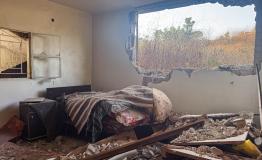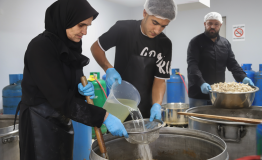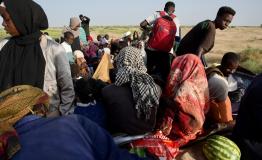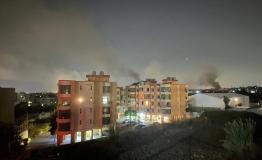

Lebanon
In August, a huge explosion tore through the capital, Beirut, killing at least 200 people and destroying many homes and businesses. The blast resulted in a spike in COVID-19 cases as thousands of injured and traumatised people took to the streets to seek treatment for their wounds or search for missing family members, abandoning all precautionary measures.
Doctors Without Borders (MSF) assisted residents of the devastated areas by providing medical care and mental health support, distributing hygiene kits, and installing water tanks.

152,900
152,9
11,600
11,6
9,430
9,43
4,610
4,61
COVID-19 spread from September and overwhelmed the healthcare system. A series of lockdowns further aggravated the economic crisis. As the number of cases increased, we transformed our hospital in the Bekaa Valley into a COVID-19 facility and supported an isolation centre in Siblin, in the south of the country.
In Elias Haraoui in Zahle, we adapted and expanded our activities in the emergency room to ensure effective triage of patients. Our teams also carried out COVID-19 testing and health promotion activities in several locations across Lebanon.
Preventing the pandemic from disrupting other essential health services was of fundamental importance to our teams in Lebanon.
During the year, we kept existing activities running, to ensure access to free, high-quality healthcare for vulnerable people in need of medical or humanitarian support, such as Syrian refugees – there are over a million in the country.
We ran reproductive health services and maternity centres in south Beirut and Arsal, and offered general and intensive care, including vaccinations and treatment for children with thalassemia, an inherited blood disorder. Mental health support and care for non-communicable diseases were also available in our projects.
No. staff in 2020: 627 (FTE) » Expenditure in 2020: €31.3 million MSF first worked in the country: 1976


"Love of my life, who could have imagined what the world had in store for us?”

Lebanon: Surviving war with community-led care

Lebanon: Israel’s bombardment causes unprecedented mass displacement of people, urgent humanitarian needs

“I hope we can return to our houses; if there are houses to go back to”
